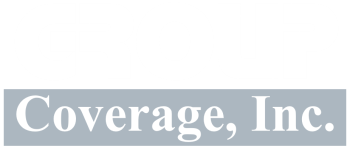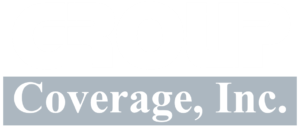- Garage Liability & Umbrella Insurance
- Automotive Insurance for Auto Body and Collision Shops
- Car Wash & Auto Detailing Insurance
Garage Liability & Umbrella Insurance
Garage liability insurance provides coverage to help protect the financial interest of the shop against third party liability losses. These losses would typically result from negligent acts or accidents. Generally, the scope of coverage extends to the operation of the business, the premises it occupies, the products it sells, and the work performed after it’s completed, also known as completed operations. The operations hazards are those exposures occurring during business operation such as providing protection against third party liability losses form driving a non-owned vehicle. Premises liability protects against trip and fall claims at the described location.
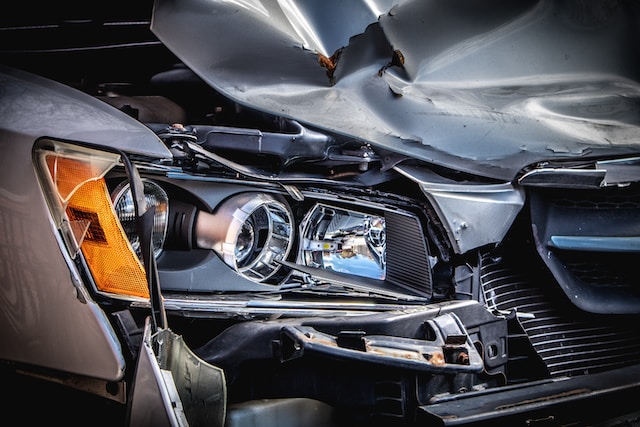
But garage liability claims often occur after the work is preformed and the vehicles are released to the customer. This exposure typically falls under completed operations but may occur as a result of a product sold that is deemed to be defective, hence product liability is generally also afforded. Other liability exposures include personal and advertising injury; however these exposures are typically added back by endorsement.
Physical damage to the customers’ vehicles is ordinarily excluded, therefore garage keepers’ liability is often necessary to secure. Garage keepers protect against damage or loss resulting from either comprehensive and/or collision. Some carriers will limit the comprehensive to a named peril basis only providing coverage on a limited basis such as fire and theft. Most carriers provide protection on a legal liability basis which will generally protect if the garage is legally liable and may exclude coverage for accidents beyond the control of the business. Hence garage keepers’ primary coverage generally provides protection regardless of fault.
How is the cost of these policies determined?
Garage liability policies are most often rated based on payroll; however, sales may be a factor. Payroll is often calculated on a percentage of time each employee works during the week then multiplied by the number of weeks worked in the year. An example would be if a full timer was to work the entire year; their payroll would be 100% or $ 100/week times 52 weeks amounting to $ 5200. This number is added to the other employees to determine the aggregate payroll. If there are four full time employees and one part time, the figures may look like this:
4 F/T’s x $ 5200 each = $ 20,800 + 1 P/T @ $ 2600 = $ 23,400 total. This amount is then multiplied by a factor set by the carrier to determine the garage liability premium. Note, this amount generally does not include the garage keeper’s liability exposures or any liability insurance relating to the sales or operations of owned or hired vehicles.
Garage keepers’ liability insurance is most often rated by the aggregate value being insured usually broken down by the amount of comprehensive and a separate amount for the collision. Any owned vehicles, such as a station car or a tow truck is rated by the usage, the year, make, and model, value, radius, etc. Dealer and transporter plates can be calculated by the number of plates, or some other factor.
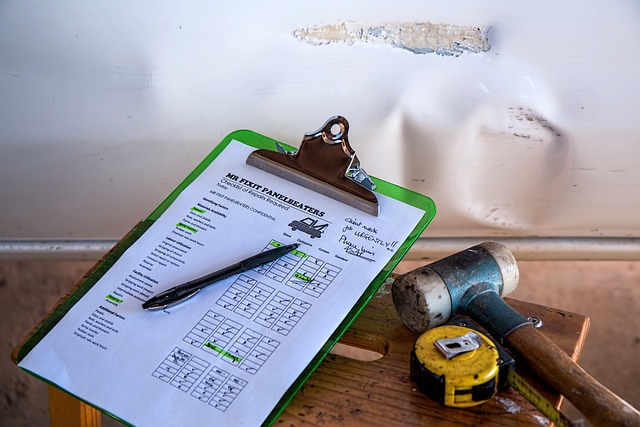
An umbrella policy typically adds an additional layer of liability coverage over the underlying or base limits. A follow form umbrella generally matches the coverage including the limitations and exclusions whereas an excess liability policy defines what is covered which can deviate from the underlying policy.
Commercial Property Insurance
Similar to commercial general liability policies, commercial property policies typically cover perils on a named basis. Therefore, it is important to determine what risks are prevalent to the establishment. These policies are generally written on either a basic, broad, or special basis. The first two define which perils are covered, while the latter covers all direct physical losses except for the exclusions. Again, it is important to determine every aspect of what perils are inherent to the business.

Workers’ Compensation & Statutory Disability Insurance
All states have workers’ compensation laws that require organizations to provide coverage or a means to pay for their employees claims in the event of an on the job injury or illness. Please refer to the insurance department or the department of labor in the state for which the business operates and the employees are located or work in. Statutory disability may also be required which provides coverage for off the job injuries and illnesses.
By William F. Schaake, CIC, CRM © 2011-2023 All rights reserved
Insurance for Auto Body and Collision Shops
The operations hazards are those exposures occurring during business operations such as providing protection against third partly liability losses from driving a non-owned vehicle. Premises liability protects against trip and fall claims at the described location. But garage liability claims often occur after the work is performed and the vehicles are released to the customer. This exposure typically falls under completed operations but may occur because of a product sold that is deemed to be defective, hence product liability is generally also afforded. Other liability exposures include personal and advertising injury; however, these exposures are typically added back by endorsement.
How is the cost of these policies determined?
Garage liability policies are most often rated based on payroll; however, sales may be a factor. Payroll is often calculated on a percentage of time each employee works during the week then multiplied by the number of weeks worked in the year. An example would be if a full timer was to work the entire year; their payroll would be 100% or $ 100/week times 52 weeks amounting to $ 5200. This number is added to the other employees to determine the aggregate payroll. If there are four full time employees and one part time, the figures may look like this:
4 F/T’s x $ 5200 each = $ 20,800 + 1 P/T @ $ 2600 = $ 23,400 total. This amount is then multiplied by a factor set by the carrier to determine the garage liability premium. Note, this amount generally does not include the garage keeper’s liability exposures or any liability insurance relating to the sales or operations of owned or hired vehicles.
Garage keepers’ liability insurance is most often rated by the aggregate value being insured usually broken down by the amount of comprehensive and a separate amount for the collision. Any owned vehicles, such as a station car or a tow truck is rated by the usage, the year, make, and model, value, radius, etc. Dealer and transporter plates can be calculated by the number of plates, or some other factor.
An umbrella policy typically adds an additional layer of liability coverage over the underlying or base limits. A follow form umbrella generally matches the coverage including the limitations and exclusions whereas an excess liability policy defines what is covered which can deviate from the underlying policy.
Commercial Auto and Tow Truck Insurance
Auto and truck insurance provide coverage for liability, uninsured motorist, no-fault protection, and coverage for the physical damage to the fleet. Also worth considering are rental hire and non-owned liability, rental reimbursement, and glass. Many shop owners utilize station vehicles and tow trucks. In addition, transporter and dealer plates are frequently used to transport customer cars and sell parts and vehicles to the public, between shops, and to the salvage yards.
Generally, vehicle insurance is covered under a separate form or policy. The rating is determined by classification, type, year, make & model, usage, radius of operation, value, driver information, location, among other factors. It is especially important to determine the limits of liability when insuring tow trucks and dealer and/or transporter plates. Most state DMV’s have specific limits of liability required.
Commercial Property
Like commercial general liability policies, commercial property policies typically cover perils on a named basis. Therefore, it is important to determine what risks are prevalent to the establishment. These policies are generally written on either a basic, broad, or special basis. The first two define which perils are covered, while the latter covers all direct physical losses except for the exclusions. Again, it is important to determine every aspect of what perils are inherent to the business.
An auto body shop typically owns equipment needed for frame straightening and painting which may cost a considerable amount of money to replace. Other equipment may include the mixing machines for the paints and clear coats, the compressors, lifts, spray booth, pneumatic tools, inventory, and computer diagnostic equipment. It is important to periodically review the equipment list to ensure a proper amount of coverage is provided to replace the equipment in the event of a loss. Certain factors should be considered in determining the value such as the recoverable methods, the total values, an itemized breakdown by classification, the deductible, and the coinsurance clause.
Settlement options describe the recovery method to be used prior to the loss and is typically on either a replacement cost or actual cash value basis. However, an agreed or stated amount can be offered to provide a predetermined settlement amount. If depreciation is a concern, it is generally recommended that a settlement option does not drastically depreciate the described items.
Machinery & equipment can often be scheduled by classification. Heavy or mobile equipment is often excluded on a standard business personal property form, hence it prudent to schedule this equipment usually as a separate floater with its own limits. Often, this allows for greater flexibility and control with the insurance costs and coverage. Another advantage of itemizing the equipment is the ability to specify the perils of coverage by category. It is difficult for large machinery to be stolen, however, hand and pneumatic tools as well as parts often grow feet as the expression goes, therefore covering the smaller items on a special form including theft and the heavy equipment without it, offers the shop owner the ability to save money on the insurance cost while protecting the items from perils based on their needs.
Loss of Business Income & Extra Expense or BI & EE
Business owners’ policies most often offer loss of business income (previously termed business interruption) on an ‘Actual Loss Sustained’ basis (ALS) subject to the terms, conditions, and exclusions of the policy. Generally, the coverage pays for the continuing operating expenses and net profits before taxes due to a loss caused by a covered peril (read policy form). This coverage is usually granted for a period of one year. On the other hand, the commercial package policy requires a specific monetary limit scheduled and a period or term listed such as a period of three months. Coverage is determined by the type of form selected such as basic, broad, and special for both the BOP as well as the CPP.
Extra Expense provides for payment due to a covered loss to help mitigate the claim such as with the loss of business income. This may include the rental of a temporary location and the cost of transferring the contents to the location to help resume operations quicker than if no measures were taken. It may also include the payment for temporary help to expedite business operations.
As with most retail businesses, sporting goods stores derive most of its income from walk in traffic therefore it is important to properly protect against the monetary loss of income due to a claim that can shut down the operations.
Workers’ Compensation & Statutory Disability Insurance
All states have workers’ compensation laws that require organizations to provide coverage or a means to pay for its employees’ claims in the event of an on-the-job injury or illness. Please refer to the insurance department or the department of labor in the state for which the business operates and the employees are located or work in. Statutory disability may also be required which provides coverage for off the job injuries and illnesses.
By William F. Schaake, CIC, CRM © 2012-2023 All rights reserved.
Car Wash & Auto Detailing Insurance
Whether the car wash is brushless, utilizes high power pressure washing, or even old-fashioned elbow grease the concern is almost the same for all in the industry:
- Provide a valuable service.
- Release a clean machine.
- Cause no damage.
- Earn a profit.
The hope is the customer will come back again. It’s the repeat business that keeps auto detail technicians in business.
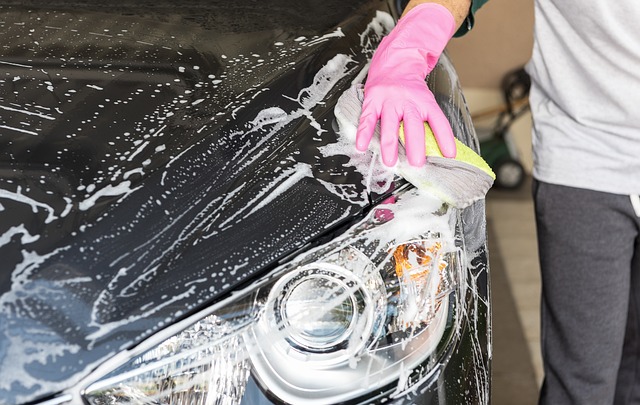
What are the inherent exposures of a car wash business?
- Damage to the vehicle
- Loss of business income
- Injury to an employee
- Trip & Fall on the premises.
- Theft of monies & securities
- Pollution liability
- Mechanical breakdown
The above examples are only a few of the concerns that face the typical automobile detailing service. Other factors should also be addressed such as:
- What type of vehicles are worked on?
- How many vehicles are kept on the premises?
- What is the average value of each vehicle?
- Where are vehicles stored overnight?
- Is work performed on a wholesale basis?
- Who tests drives the vehicles?
- Are transporter plates used?
- Are the tools owned by the shop or the mechanics?
- How are hazardous materials stored?
- How are pollutants disposed of?
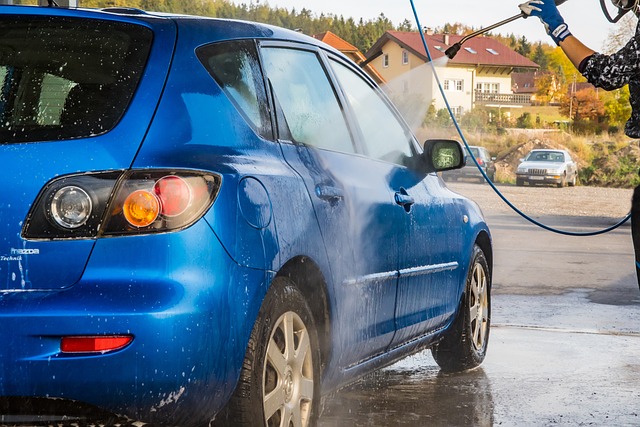
Garage Liability & Umbrella Insurance
Garage liability insurance provides coverage to help protect the financial interest of the shop against third party liability losses. These losses would typically result from negligent acts or accidents. Generally, the scope of coverage extends to the operation of the business, the premises it occupies, the products it sells, and the work performed after it’s completed, also known as completed operations. The operations hazards are those exposures occurring during business operation such as providing protection against third party liability losses from driving a non-owned vehicle. Premises liability protects against trip and fall claims at the described location.
Garage Keepers’ Legal and Primary Liability
Physical damage to the customers’ vehicles is ordinarily excluded, therefore garage keepers’ liability is often necessary to secure. Garage keepers protect against damage or loss resulting from either comprehension and/or collision.
Garage keepers’ liability insurance is most often rated by the aggregate value of what is being insured usually broken down by the amount of comprehensive and a separate amount for the collision. Any owned vehicles, such as a station car or a tow truck is rated by the usage, the year, make, and model, value, radius, etc. Dealer and transporter plates can be calculated by the number of plates, or some other factor.
An umbrella policy typically adds an additional layer of liability coverage over the underlying or base limits.
By William F. Schaake, CIC, CRM © 2012-2023 All rights reserved.
Garage Liability & Umbrella Insurance
Garage liability insurance provides coverage to help protect the financial interest of the shop against third party liability losses. These losses would typically result from negligent acts or accidents. Generally, the scope of coverage extends to the operation of the business, the premises it occupies, the products it sells, and the work performed after it’s completed, also known as completed operations. The operations hazards are those exposures occurring during business operation such as providing protection against third party liability losses form driving a non-owned vehicle. Premises liability protects against trip and fall claims at the described location.

But garage liability claims often occur after the work is preformed and the vehicles are released to the customer. This exposure typically falls under completed operations but may occur as a result of a product sold that is deemed to be defective, hence product liability is generally also afforded. Other liability exposures include personal and advertising injury; however these exposures are typically added back by endorsement.
Physical damage to the customers’ vehicles is ordinarily excluded, therefore garage keepers’ liability is often necessary to secure. Garage keepers protect against damage or loss resulting from either comprehensive and/or collision. Some carriers will limit the comprehensive to a named peril basis only providing coverage on a limited basis such as fire and theft. Most carriers provide protection on a legal liability basis which will generally protect if the garage is legally liable and may exclude coverage for accidents beyond the control of the business. Hence garage keepers’ primary coverage generally provides protection regardless of fault.
How is the cost of these policies determined?
Garage liability policies are most often rated based on payroll; however, sales may be a factor. Payroll is often calculated on a percentage of time each employee works during the week then multiplied by the number of weeks worked in the year. An example would be if a full timer was to work the entire year; their payroll would be 100% or $ 100/week times 52 weeks amounting to $ 5200. This number is added to the other employees to determine the aggregate payroll. If there are four full time employees and one part time, the figures may look like this:
4 F/T’s x $ 5200 each = $ 20,800 + 1 P/T @ $ 2600 = $ 23,400 total. This amount is then multiplied by a factor set by the carrier to determine the garage liability premium. Note, this amount generally does not include the garage keeper’s liability exposures or any liability insurance relating to the sales or operations of owned or hired vehicles.
Garage keepers’ liability insurance is most often rated by the aggregate value being insured usually broken down by the amount of comprehensive and a separate amount for the collision. Any owned vehicles, such as a station car or a tow truck is rated by the usage, the year, make, and model, value, radius, etc. Dealer and transporter plates can be calculated by the number of plates, or some other factor.

An umbrella policy typically adds an additional layer of liability coverage over the underlying or base limits. A follow form umbrella generally matches the coverage including the limitations and exclusions whereas an excess liability policy defines what is covered which can deviate from the underlying policy.
Commercial Property Insurance
Similar to commercial general liability policies, commercial property policies typically cover perils on a named basis. Therefore, it is important to determine what risks are prevalent to the establishment. These policies are generally written on either a basic, broad, or special basis. The first two define which perils are covered, while the latter covers all direct physical losses except for the exclusions. Again, it is important to determine every aspect of what perils are inherent to the business.

Workers’ Compensation & Statutory Disability Insurance
All states have workers’ compensation laws that require organizations to provide coverage or a means to pay for their employees claims in the event of an on the job injury or illness. Please refer to the insurance department or the department of labor in the state for which the business operates and the employees are located or work in. Statutory disability may also be required which provides coverage for off the job injuries and illnesses.
By William F. Schaake, CIC, CRM © 2011-2023 All rights reserved
Insurance for Auto Body and Collision Shops
The operations hazards are those exposures occurring during business operations such as providing protection against third partly liability losses from driving a non-owned vehicle. Premises liability protects against trip and fall claims at the described location. But garage liability claims often occur after the work is performed and the vehicles are released to the customer. This exposure typically falls under completed operations but may occur because of a product sold that is deemed to be defective, hence product liability is generally also afforded. Other liability exposures include personal and advertising injury; however, these exposures are typically added back by endorsement.
How is the cost of these policies determined?
Garage liability policies are most often rated based on payroll; however, sales may be a factor. Payroll is often calculated on a percentage of time each employee works during the week then multiplied by the number of weeks worked in the year. An example would be if a full timer was to work the entire year; their payroll would be 100% or $ 100/week times 52 weeks amounting to $ 5200. This number is added to the other employees to determine the aggregate payroll. If there are four full time employees and one part time, the figures may look like this:
4 F/T’s x $ 5200 each = $ 20,800 + 1 P/T @ $ 2600 = $ 23,400 total. This amount is then multiplied by a factor set by the carrier to determine the garage liability premium. Note, this amount generally does not include the garage keeper’s liability exposures or any liability insurance relating to the sales or operations of owned or hired vehicles.
Garage keepers’ liability insurance is most often rated by the aggregate value being insured usually broken down by the amount of comprehensive and a separate amount for the collision. Any owned vehicles, such as a station car or a tow truck is rated by the usage, the year, make, and model, value, radius, etc. Dealer and transporter plates can be calculated by the number of plates, or some other factor.
An umbrella policy typically adds an additional layer of liability coverage over the underlying or base limits. A follow form umbrella generally matches the coverage including the limitations and exclusions whereas an excess liability policy defines what is covered which can deviate from the underlying policy.
Commercial Auto and Tow Truck Insurance
Auto and truck insurance provide coverage for liability, uninsured motorist, no-fault protection, and coverage for the physical damage to the fleet. Also worth considering are rental hire and non-owned liability, rental reimbursement, and glass. Many shop owners utilize station vehicles and tow trucks. In addition, transporter and dealer plates are frequently used to transport customer cars and sell parts and vehicles to the public, between shops, and to the salvage yards.
Generally, vehicle insurance is covered under a separate form or policy. The rating is determined by classification, type, year, make & model, usage, radius of operation, value, driver information, location, among other factors. It is especially important to determine the limits of liability when insuring tow trucks and dealer and/or transporter plates. Most state DMV’s have specific limits of liability required.
Commercial Property
Like commercial general liability policies, commercial property policies typically cover perils on a named basis. Therefore, it is important to determine what risks are prevalent to the establishment. These policies are generally written on either a basic, broad, or special basis. The first two define which perils are covered, while the latter covers all direct physical losses except for the exclusions. Again, it is important to determine every aspect of what perils are inherent to the business.
An auto body shop typically owns equipment needed for frame straightening and painting which may cost a considerable amount of money to replace. Other equipment may include the mixing machines for the paints and clear coats, the compressors, lifts, spray booth, pneumatic tools, inventory, and computer diagnostic equipment. It is important to periodically review the equipment list to ensure a proper amount of coverage is provided to replace the equipment in the event of a loss. Certain factors should be considered in determining the value such as the recoverable methods, the total values, an itemized breakdown by classification, the deductible, and the coinsurance clause.
Settlement options describe the recovery method to be used prior to the loss and is typically on either a replacement cost or actual cash value basis. However, an agreed or stated amount can be offered to provide a predetermined settlement amount. If depreciation is a concern, it is generally recommended that a settlement option does not drastically depreciate the described items.
Machinery & equipment can often be scheduled by classification. Heavy or mobile equipment is often excluded on a standard business personal property form, hence it prudent to schedule this equipment usually as a separate floater with its own limits. Often, this allows for greater flexibility and control with the insurance costs and coverage. Another advantage of itemizing the equipment is the ability to specify the perils of coverage by category. It is difficult for large machinery to be stolen, however, hand and pneumatic tools as well as parts often grow feet as the expression goes, therefore covering the smaller items on a special form including theft and the heavy equipment without it, offers the shop owner the ability to save money on the insurance cost while protecting the items from perils based on their needs.
Loss of Business Income & Extra Expense or BI & EE
Business owners’ policies most often offer loss of business income (previously termed business interruption) on an ‘Actual Loss Sustained’ basis (ALS) subject to the terms, conditions, and exclusions of the policy. Generally, the coverage pays for the continuing operating expenses and net profits before taxes due to a loss caused by a covered peril (read policy form). This coverage is usually granted for a period of one year. On the other hand, the commercial package policy requires a specific monetary limit scheduled and a period or term listed such as a period of three months. Coverage is determined by the type of form selected such as basic, broad, and special for both the BOP as well as the CPP.
Extra Expense provides for payment due to a covered loss to help mitigate the claim such as with the loss of business income. This may include the rental of a temporary location and the cost of transferring the contents to the location to help resume operations quicker than if no measures were taken. It may also include the payment for temporary help to expedite business operations.
As with most retail businesses, sporting goods stores derive most of its income from walk in traffic therefore it is important to properly protect against the monetary loss of income due to a claim that can shut down the operations.
Workers’ Compensation & Statutory Disability Insurance
All states have workers’ compensation laws that require organizations to provide coverage or a means to pay for its employees’ claims in the event of an on-the-job injury or illness. Please refer to the insurance department or the department of labor in the state for which the business operates and the employees are located or work in. Statutory disability may also be required which provides coverage for off the job injuries and illnesses.
By William F. Schaake, CIC, CRM © 2012-2023 All rights reserved.
Car Wash & Auto Detailing Insurance
Whether the car wash is brushless, utilizes high power pressure washing, or even old-fashioned elbow grease the concern is almost the same for all in the industry:
- Provide a valuable service.
- Release a clean machine.
- Cause no damage.
- Earn a profit.
The hope is the customer will come back again. It’s the repeat business that keeps auto detail technicians in business.

What are the inherent exposures of a car wash business?
- Damage to the vehicle
- Loss of business income
- Injury to an employee
- Trip & Fall on the premises.
- Theft of monies & securities
- Pollution liability
- Mechanical breakdown
The above examples are only a few of the concerns that face the typical automobile detailing service. Other factors should also be addressed such as:
- What type of vehicles are worked on?
- How many vehicles are kept on the premises?
- What is the average value of each vehicle?
- Where are vehicles stored overnight?
- Is work performed on a wholesale basis?
- Who tests drives the vehicles?
- Are transporter plates used?
- Are the tools owned by the shop or the mechanics?
- How are hazardous materials stored?
- How are pollutants disposed of?

Garage Liability & Umbrella Insurance
Garage liability insurance provides coverage to help protect the financial interest of the shop against third party liability losses. These losses would typically result from negligent acts or accidents. Generally, the scope of coverage extends to the operation of the business, the premises it occupies, the products it sells, and the work performed after it’s completed, also known as completed operations. The operations hazards are those exposures occurring during business operation such as providing protection against third party liability losses from driving a non-owned vehicle. Premises liability protects against trip and fall claims at the described location.
Garage Keepers’ Legal and Primary Liability
Physical damage to the customers’ vehicles is ordinarily excluded, therefore garage keepers’ liability is often necessary to secure. Garage keepers protect against damage or loss resulting from either comprehension and/or collision.
Garage keepers’ liability insurance is most often rated by the aggregate value of what is being insured usually broken down by the amount of comprehensive and a separate amount for the collision. Any owned vehicles, such as a station car or a tow truck is rated by the usage, the year, make, and model, value, radius, etc. Dealer and transporter plates can be calculated by the number of plates, or some other factor.
An umbrella policy typically adds an additional layer of liability coverage over the underlying or base limits.
By William F. Schaake, CIC, CRM © 2012-2023 All rights reserved.
